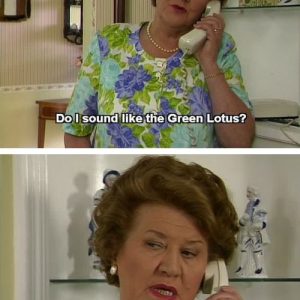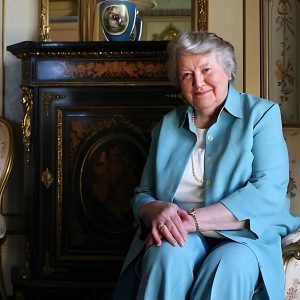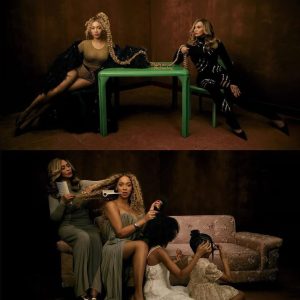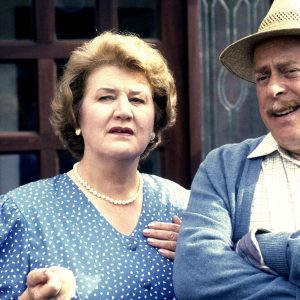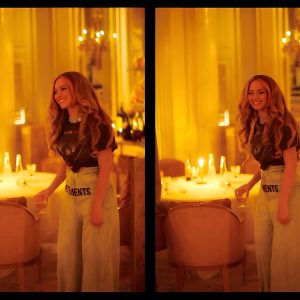Dame Patricia Routledge: From War-Torn Birkenhead to the Reigning Queen of British Comedy
To many around the world, she will forever be known as the indomitable, social-climbing Hyacinth Bucket—pronounced “Bouquet,” of course. But Dame Patricia Routledge’s journey to comedy royalty began far from the manicured lawns and candlelight suppers of suburban sitcom life. Her story is one of resilience, dedication, and unmatched versatility, both on stage and screen.
Born on February 17, 1929, in Tranmere, Birkenhead, Cheshire, Patricia Routledge’s early life was shaped by war, hardship, and the enduring British spirit. As German bombs fell during the Liverpool Blitz of World War II, young Patricia and her family sought refuge in the basement of her father’s haberdashery. It was a humble beginning for a woman who would grow to command stages on both sides of the Atlantic—and the hearts of millions.
A Scholar with a Flair for the Dramatic
Routledge’s education at Birkenhead High School for Girls fostered the beginnings of a lifelong relationship with performance. Not only did she sing in the school choir, she also ran the Sunday School, giving her early experience in leadership and presentation. She went on to graduate with honours in English Language and Literature from the University of Liverpool, where her academic pursuits were matched by an increasing passion for drama.
It was at Liverpool University’s Dramatic Society where Routledge’s talent first began to shine. Post-graduation, she volunteered at the Liverpool Playhouse, working unpaid until she was asked to join the company—a turning point that marked the start of a remarkable theatrical career.
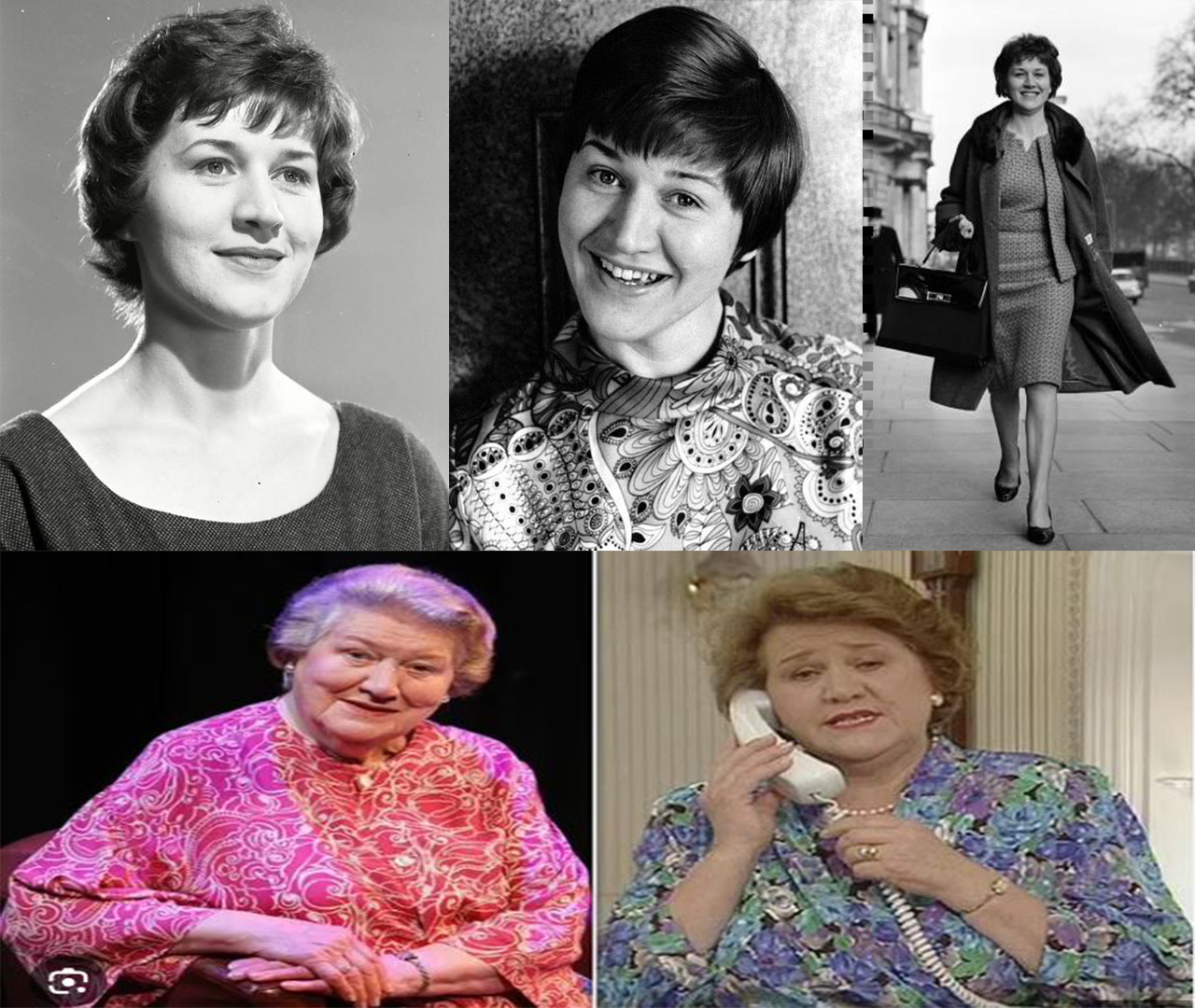
After training at the prestigious Bristol Old Vic Theatre School, she relocated to London, where she built a formidable presence in British theatre. Routledge’s range, intellect, and vocal prowess earned her accolades in Shakespearean dramas, modern plays, and musical theatre alike. By the mid-1960s, she had taken her talents to Broadway, earning critical acclaim between 1966 and 1968.
Television Beginnings: A Witch, a Clairvoyant, and a Café Owner
Routledge’s early television career was defined by an eclectic mix of roles. In 1961, she appeared in Coronation Street as Sylvia Snape, the no-nonsense café owner. A decade later, in Doctor at Large (1971), she played a local ‘white witch’—a nod to her affinity for colorful, eccentric characters. One of her most memorable early performances came in 1974’s Steptoe and Son, where she portrayed Madame Fontana, a clairvoyant in the hauntingly hilarious episode “Seance in a Wet Rag and Bone Yard.”
Yet despite these notable appearances, Routledge remained somewhat under the radar on television throughout the 1970s.
The Bennett Years: A Muse Emerges
That all changed in the 1980s when Routledge began collaborating with writer Alan Bennett. His sharply observed monologues provided her with the perfect vehicle to showcase her emotional depth, timing, and subtlety.
Her performance in A Lady of Letters, part of Bennett’s Talking Heads series, earned her a BAFTA nomination for Best Actress. As the lonely, judgmental Irene Ruddock, Routledge delivered a masterclass in quiet tragedy cloaked in humor. It was a performance that confirmed what the theatre world already knew: Patricia Routledge was a force to be reckoned with.
Another breakout role came via Victoria Wood: As Seen on TV, where Routledge played Kitty, an outspoken and opinionated character. These sketches hinted at the comedic brilliance she would soon unleash on the world.
“The Bouquet Residence! The Lady of the House Speaking!”
In 1990, Routledge stepped into the role that would define her legacy for a generation: the irrepressible Hyacinth Bucket in Keeping Up Appearances. As the socially ambitious housewife obsessed with impressing her upper-class neighbors—despite her working-class roots—Hyacinth became a cultural icon.
The brilliance of Routledge’s portrayal lay not just in the lines she delivered, but in the physicality of the character—the over-pronounced vowels, the imperious walk, the pinched expressions, and the comedic gold of her twitchy disapproval. Her chemistry with co-star Clive Swift, who played her long-suffering husband Richard, was nothing short of legendary.
“The basic premise of Hyacinth is pretension, and that’s the source of so much comedy,” Routledge once said. “While attempting to be a social climber, she also had to deal with members from the other side of her family like Onslow, who sat around in his string vest drinking beer. In a way, the show was a microcosm for society.”
Hyacinth’s desperate efforts to avoid her less-refined relatives—often shouting “Richard, you know I love my family, but that’s no reason I should have to acknowledge them in broad daylight!”—provided endless laughs for audiences in Britain and abroad.
Awards, Honors, and a Dignified Exit
For her performance in Keeping Up Appearances, Routledge earned the 1991 British Comedy Award and two subsequent BAFTA TV Award nominations. In 1992, she was named BBC Television Personality of the Year, and in 1993, she was appointed an Officer of the Order of the British Empire (OBE). She would later receive a damehood for services to the arts.
Despite the show’s immense popularity, Routledge made the bold decision to end Keeping Up Appearances in 1995 after five wildly successful series and 44 episodes. “I’d much rather people look back and say, ‘I remember that,’ than ask, ‘Oh, is that still on?’” she remarked in a candid interview.
She also cited concerns over creative repetition, saying that the show’s scripts were beginning to feel recycled.
Beyond Hyacinth: The Sleuth and the Songbird
Routledge didn’t rest on her comedic laurels. She returned to drama in Hetty Wainthropp Investigates, first introduced in 1989 and revived from 1996 to 1998. As the resourceful pensioner-turned-detective, Routledge proved once again that age was no barrier to reinvention and reinvigoration.
Her radio work, including Alan Bennett plays and the beloved Ladies of Letters series opposite Prunella Scales, further showcased her vocal talents and range. A classically trained singer, Routledge also earned acclaim in operetta and musical theatre—both in the UK and on Broadway.
A Lasting Legacy
Dame Patricia Routledge remains one of Britain’s most beloved performers. Her work spans genres, generations, and continents. She is not merely a sitcom legend—she is a cultural touchstone, an actor of immense depth and diversity.
“When I approach the pearly gates,” she once said with a twinkle in her eye, “I’d like to hear a champagne cork popping, an orchestra tuning up, and the sound of my mother laughing.”
And somewhere in the background, perhaps just faintly, the phone is ringing—and a voice answers, “The Bouquet residence. The lady of the house speaking!”
